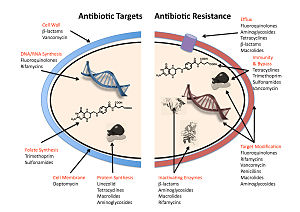
The Health Information and Quality Authority has begun a national quality assurance review of antimicrobial stewardship.
The review, which involves all acute hospitals, follows the announcement from China last week that a newly discovered gene has made some infectious bacteria resistant to the last line of currently available antibiotics.
HIQA spokesperson Sean Egan says antimicrobial resistance poses a significent challenge for health services, and all possible measures must be put in place to ensure antibiotics remain effective……….
Audio Player
HIQA statement in full –
The Health Information and Quality Authority (HIQA) are conducting a national quality assurance review across all public acute hospitals in relation to antimicrobial stewardship. The announcement from China that a newly discovered gene has made infectious Gram-negative bacteria resistant to the last line of currently available antibiotics has brought into sharp focus the importance of vigilance when it comes to the proper usage of antimicrobials.
HIQA’s Inspector Manager of Healthcare Regulation, Sean Egan said; “Antimicrobial resistance poses a huge current and future challenge for health services globally. The ongoing discovery of new antibiotics has failed to keep pace with the emergence of antibiotic resistance. While there are a number of global initiatives underway to try to address this mismatch, in the short term it is unlikely that new antibiotics aimed at treating Gram-negative infection in particular will become available. Consequently, as a society we need to ensure that all possible measures are in place to preserve the utility of antibiotics that remain effective in treating such infection.”
“Antimicrobial stewardship helps to combat resistance by ensuring the effectiveness of antimicrobial agents is preserved for as long as possible through careful and expert usage. All public acute hospitals are expected to have effective antimicrobial stewardship programmes in place. In short, these programmes intend to ensure that every patient receives the right antimicrobial therapy, at the right dose, route and duration, for the right infection type at the right time.”
Since June of this year, HIQA’s hospital inspection programme, in line with monitoring compliance against the National Standards for the Prevention and Control of Healthcare Associated Infections, has focused specifically on antimicrobial stewardship. This national assurance review intends to recognise and share learning where good practice exists, and identify potential scope for improvement where possible, in the interest of improving high performance in all public acute hospitals. HIQA’s guidelines outline the necessary governance structures, essential staffing requirements and recommended interventions required to implement antimicrobial stewardship effectively.
Sean Egan continued; “In a time of ever increasing global travel, the risk of the spread of resistant bacteria is heightened. It is critically important that all hospitals have appropriate defences in place to both mitigate the risk of transmission of multidrug resistant bacteria, and prevent their emergence through optimal usage of antimicrobials.”
The full document, Guide to the Health Information and Quality Authority’s review of antimicrobial stewardship in public acute hospitals, can be found here: http://www.hiqa.ie/publications/guide-health-information-and-quality-authoritys-review-antimicrobial-stewardship-public
Audio Player
Podcast: Play in new window | Download





